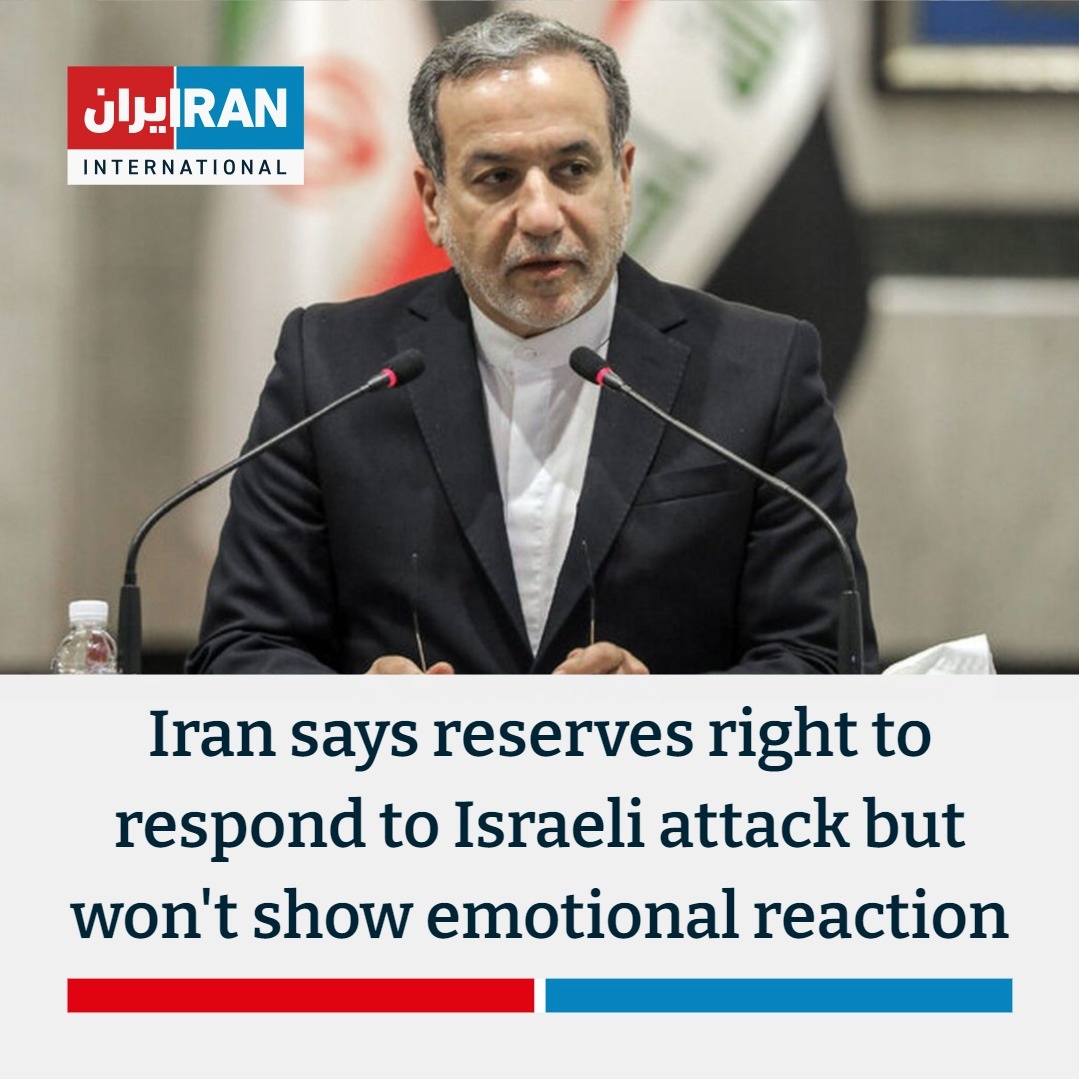Iran's Foreign Minister Abbas Araghchi stated that responding to Israeli attacks is the Islamic Republic's right, but emphasized that Tehran will decide its response without succumbing to emotional reactions.
Iran's Foreign Minister Affirms Right to Retaliate Against Israeli Attacks, Cautions Against Emotional Responses


Iran’s Foreign Minister Affirms Right to Respond to Israeli Attacks, Cautions Against Emotional Reactions
Tehran – Wednesday, October 30, 2024
Iran's Foreign Minister Abbas Araghchi addressed recent tensions with Israel on Tuesday, asserting that responding to Israeli military actions is a sovereign right of the Islamic Republic. However, he emphasized that any response will be measured and carefully considered, warning against allowing external influences to provoke emotional reactions from Tehran.
During a press conference, Araghchi stated, “Responding to Israel’s attack is our right, but the Islamic Republic will decide on this response itself. We won’t allow anyone to drag us into emotional reactions.” His remarks come in the wake of escalating hostilities between the two nations, particularly following Israel's recent airstrikes that targeted Iranian interests in the region.
The Iranian Foreign Minister further pointed out that Tehran is aware of the countries that permitted Israel to utilize their airspace for these operations. He specifically named the United States as the principal antagonist in this ongoing conflict, underscoring Iran's belief that U.S. policies in the region have contributed to the escalating tensions. “The U.S. is the main culprit behind these aggressions,” Araghchi stated, reinforcing Iran’s position that it holds Washington accountable for facilitating Israel's military actions against Iranian targets.
Araghchi’s comments reflect a broader narrative within Iranian leadership, which views Israel's military activities as provocations that necessitate a robust response. The foreign minister reiterated that while Iran is prepared to respond to threats, such responses will be calculated and strategic rather than impulsive.
Tensions have been particularly high in recent months, as Israel has conducted a series of airstrikes in Syria and other areas, targeting Iranian positions and proxy groups. Iran has vowed to retaliate but has consistently stated that it will choose the timing and manner of its response. This approach is part of a broader strategy to project strength while avoiding escalation into full-scale conflict.
The rhetoric from Tehran has also included warnings against any potential military collaboration among its adversaries. Iran has expressed concerns that neighboring countries may align with Israeli operations, which it perceives as a direct threat to its national sovereignty. “We are closely monitoring the situation and will take necessary steps to ensure our security,” Araghchi affirmed.
International observers are watching the situation closely, as further escalations could destabilize the region. The potential for miscalculation remains high, given the volatile dynamics at play. The U.S. and its allies have urged Iran to refrain from retaliatory actions that could lead to wider conflict, while simultaneously reaffirming their commitment to Israel's security.
As Iran contemplates its next steps, the complexities of regional geopolitics remain in play. Diplomatic efforts to address tensions have faced significant challenges, with negotiations around Iran’s nuclear program stalling. The Iranian leadership is keenly aware of the consequences of any military response and aims to balance its national pride with the realities of international diplomacy.
In the meantime, both Israel and Iran maintain a posture of readiness, reflecting the precarious balance of power in the Middle East. The coming days and weeks may prove critical as both sides navigate this complex landscape, with global implications for security and stability in the region.

 বাংলা
বাংলা  Spanish
Spanish  Arabic
Arabic  French
French  Chinese
Chinese 